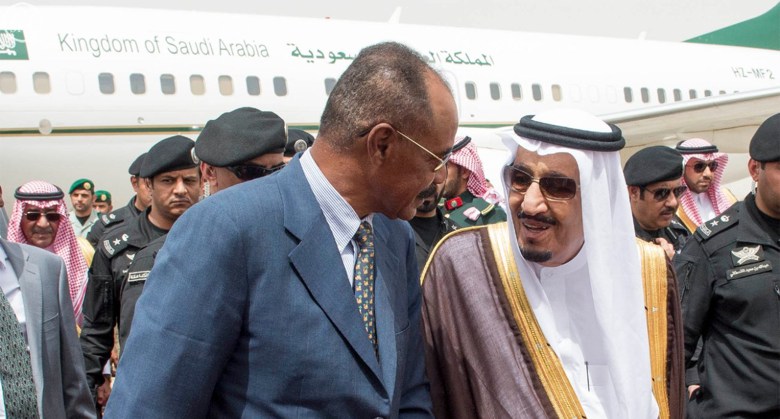Will Arab influence in the Horn of Africa be the price of peace?
2018-09-16 11:40:31 Written by Martin Plaut Published in English Articles Read 2785 times
Date: 16/09/2018
Author: Martin Plaut
The leaders of Ethiopia and Eritrea are due to sign a peace agreement today in Saudi Arabia. The signing ceremony will be hosted by Saudi King Salman in the coastal city of Jeddah.
Witnessed by the UN Secretary General, UN Secretary-General Antonio Guterres and African Union Commission chairman Moussa Faki Mahamat, it is designed to ‘cement’ peace between the two countries.
The Eritrea- Ethiopia peace agreement has been encouraged and supported by many external powers. The United States played a key role, supported by the European Union. But no-one did more to pursue this initiative than the Arab states.
Saudi Arabia and the UAE were at the forefront of these initiatives. Eritrea’s President Isaias Afwerki made repeated trips to both countries before the agreement unfolded.
Alex de Waal has argued persuasively that a ‘Pax Arabia’ is replacing a ‘Pax Americana’ in the region. But, as he warns, this could be transitory.
“A momentary “Pax Arabica” may emerge based on Gulf money used to meet African leaders’ urgent cash needs. But any peace agreements that result will be only as good as the transitory alignments of political interests from which they arose. Today, the UAE’s immediate need for a friendly African hinterland as it presses forward with its war in Yemen creates such a configuration. But that is not a foundation for a durable peace and security order.”
There is a real danger in expanding Arab influence in the Horn, for with it comes an intolerant form of Islam which was once alien to the region.
I described this before.
“Relations between the Horn of Africa and the Arabian Peninsula go back centuries, with trade playing a key component in binding their people together. Religion has also played a part. The expansion of Wahhabism– the interpretation of Islam propagated by Saudi Arabia – has been funded by the massive oil wealth of the kingdom.
Mosques, Koranic schools and Imams have been provided with support over many years. Gradually this authoritarian form of Islam began to take holdin the Horn. While some embraced it, others didn’t.
Somalia is an example. While most Somalis practised a moderate form of Suffi Islam, the Islamic fundamentalists of al-Shabaab didn’t. Soon after taking control of parts of central and southern Somalia in 2009 they began imposing a much more severe form of the faith. Mosques were destroyed and the shrines of revered Suffi leaders were desecrated.
The export of faith has been followed by arms. Today the Saudis and their allies in the United Arab Emirates are exerting increasing military influence in the region.”
This issue has not been resolved.
What price will the Saudis and their allies ask for their support? And will its overt and covert war against Iran drag the Horn of Africa into this conflict?
In short: what would it mean if the region became part of an Arab sphere of influence?
These are questions that have to be pondered.




















